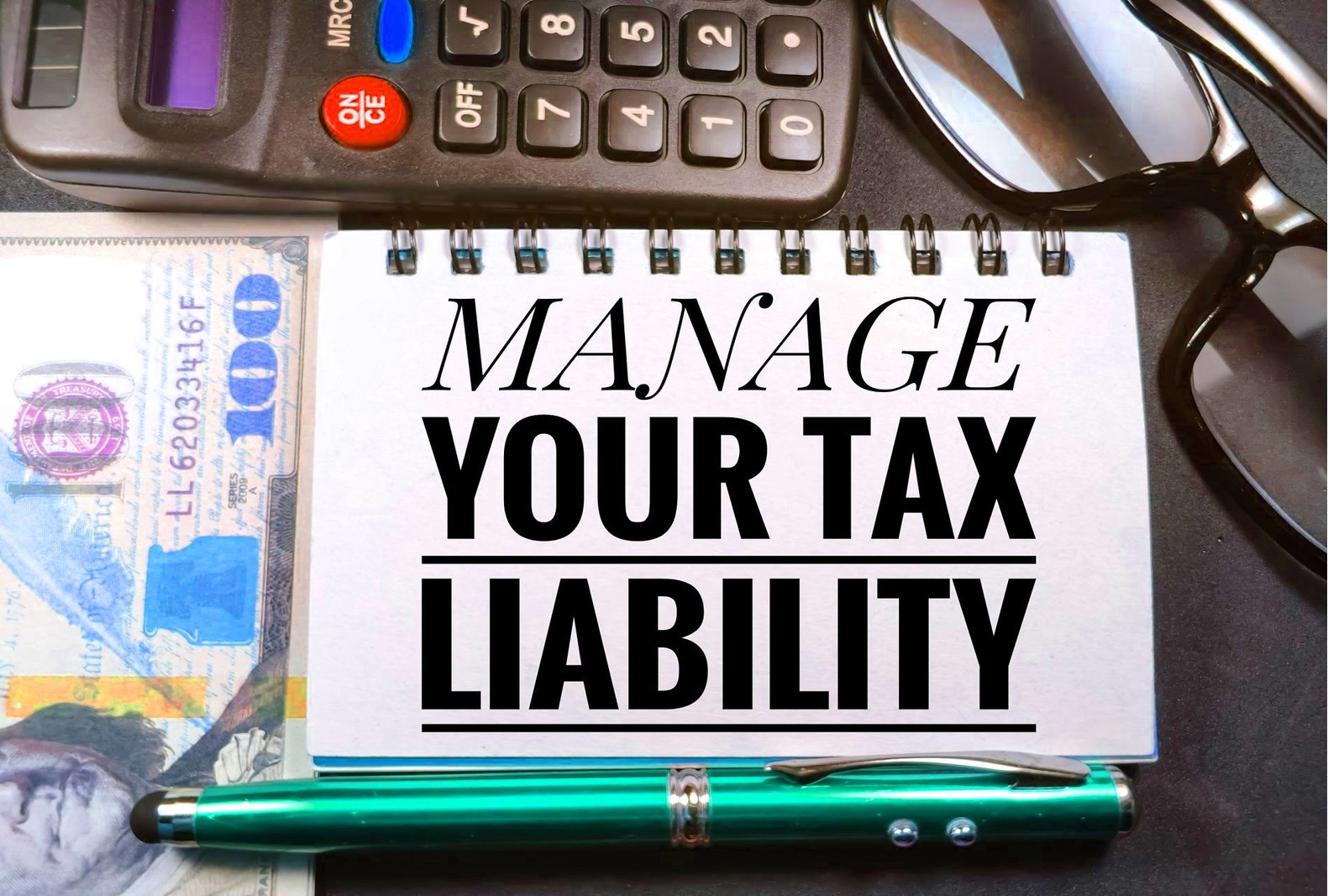Fiscal Fitness: Achieving Financial Health

Financial health is crucial for leading a stable and fulfilling life. It involves effectively managing your finances to secure your future and achieve your long-term goals. In this comprehensive guide, we’ll delve into the intricacies of fiscal fitness and provide actionable tips for achieving financial health.
Contents
- 1 Understanding Financial Health
- 2 Assessing Your Current Financial State
- 3 Creating a Budget
- 4 Managing Debt Effectively
- 5 Building Emergency Savings
- 6 Investing for the Future
- 7 Planning for Retirement
- 8 Protecting Your Financial Health
- 9 Seeking Professional Help
- 10 Staying Committed to Financial Fitness
- 11 Conclusion
- 12 FAQs(Fiscal Fitness: Achieving Financial Health)
Understanding Financial Health
Financial health encompasses various aspects of your financial well-being, including income, expenses, debt, savings, and investments. It’s not just about having a high income but also about managing your money wisely. Financial health allows you to navigate life’s uncertainties with confidence and plan for a secure future.
Defining Financial Health
Financial health can be defined as the ability to meet financial obligations, manage expenses efficiently, and save and invest for the future while maintaining a comfortable standard of living. It involves achieving a balance between income, expenses, debt, and savings to ensure long-term financial stability.
Importance of Financial Health
Having good financial health is essential for several reasons:
- Stability: Financially healthy individuals can weather unexpected expenses or emergencies without significantly impacting their overall financial well-being.
- Peace of Mind: Knowing that you have control over your finances and a plan in place for the future brings peace of mind and reduces stress.
- Goal Achievement: Financial health enables you to pursue your long-term goals, such as buying a home, starting a business, or retiring comfortably.
- Flexibility: With financial health, you have the flexibility to adapt to life changes and seize opportunities as they arise.
Assessing Your Current Financial State
Before you can improve your financial health, you need to assess your current financial situation. This involves evaluating your income, expenses, debt, and assets to understand where you stand financially.
Tracking Income and Expenses
Start by tracking your income and expenses over a defined period, such as a month. This will give you a clear picture of where your money is coming from and where it’s going. Use tools like budgeting apps or spreadsheets to categorize your expenses and identify areas where you can cut back or optimize spending.
Evaluating Debt and Assets
Next, assess your debt-to-income ratio and your assets. Calculate your total debt, including credit card debt, student loans, and mortgage or car loans, and compare it to your income. Additionally, evaluate your assets, including savings accounts, investments, and valuable possessions like real estate or vehicles. Understanding your debt and assets will help you determine your net worth and identify areas for improvement.
Creating a Budget
A budget is a fundamental tool for managing your finances effectively. It allows you to allocate your income towards expenses, savings, and debt repayment in a structured manner.
Importance of Budgeting
Budgeting helps you:
- Control Spending: By tracking your expenses and setting spending limits, you can avoid overspending and prioritize essential expenses.
- Achieve Financial Goals: A budget allows you to allocate funds towards specific financial goals, such as building an emergency fund, paying off debt, or saving for a vacation or retirement.
- Plan for the Future: Budgeting helps you anticipate future expenses and plan for major life events, such as buying a home, starting a family, or retiring.
Tips for Creating a Budget
When creating a budget:
- Start with Your Income: List all sources of income, including wages, salary, bonuses, and any additional income streams.
- Identify Fixed Expenses: These are expenses that remain relatively constant each month, such as rent or mortgage payments, utilities, insurance premiums, and loan payments.
- Allocate Funds for Variable Expenses: Variable expenses, such as groceries, dining out, entertainment, and transportation, may fluctuate from month to month. Estimate these expenses based on past spending patterns.
- Set Aside Savings: Allocate a portion of your income towards savings and investments, including emergency funds, retirement accounts, and other financial goals.
- Track Your Spending: Regularly monitor your spending and adjust your budget as needed to stay on track.
Managing Debt Effectively
Debt can be a significant obstacle to achieving financial health if not managed properly. Implementing strategies to repay debt and avoid accumulating further debt is crucial for improving your financial situation.
Strategies for Debt Repayment
Prioritize high-interest debts, such as credit card debt, and focus on paying them off first. Consider debt consolidation to combine multiple debts into a single, more manageable payment. Additionally, negotiate with creditors to lower interest rates or negotiate a repayment plan that fits your budget.
Avoiding Accumulating Further Debt
To prevent further debt accumulation:
- Live Within Your Means: Avoid using credit cards for unnecessary purchases and only borrow what you can afford to repay.
- Stick to Your Budget: By adhering to your budget and spending limits, you can avoid overspending and accumulating additional debt.
- Build an Emergency Fund: Having an emergency fund in place can help cover unexpected expenses without resorting to credit cards or loans.
Building Emergency Savings
An emergency fund is a crucial component of financial health. It provides a financial safety net to cover unexpected expenses or emergencies without derailing your financial goals.
Importance of Emergency Funds
An emergency fund:
- Provides Financial Security: Having savings set aside for emergencies ensures that you’re prepared to handle unexpected expenses, such as medical bills, car repairs, or job loss, without resorting to debt.
- Reduces Stress: Knowing that you have a financial cushion in place brings peace of mind and reduces stress during challenging times.
- Protects Long-Term Goals: An emergency fund allows you to maintain your financial stability and continue working towards your long-term goals, even in the face of unexpected setbacks.
Tips for Saving for Emergencies
To build an emergency fund:
- Set Realistic Goals: Start small and gradually increase your savings target over time. Aim to save enough to cover three to six months’ worth of living expenses.
- Automate Your Savings: Set up automatic transfers from your checking account to your emergency fund savings account each month. Treat your emergency fund savings as a non-negotiable expense.
- Cut Unnecessary Expenses: Review your budget and identify areas where you can cut back on non-essential expenses to boost your savings rate.
Investing for the Future
Investing is a crucial aspect of achieving long-term financial health. It allows your money to grow over time and provides a source of passive income for the future.
Types of Investments
There are various investment options to consider:
- Stocks: Investing in individual stocks allows you to own a portion of a company’s equity and participate in its growth potential.
- Bonds: Bonds are debt securities issued by governments or corporations. They offer fixed interest payments and return of principal at maturity.
- Mutual Funds: Mutual funds pool money from multiple investors to invest in a diversified portfolio of stocks, bonds, or other assets.
- Real Estate: Real estate investments involve purchasing properties for rental income or capital appreciation.
Starting with Small Investments
You don’t need a large sum of money to start investing. Many investment platforms offer low-cost options for beginners, such as:
- Micro-Investing Apps: Micro-investing apps allow you to invest small amounts of money in diversified portfolios of stocks and bonds.
- Employer-Sponsored Retirement Plans: If your employer offers a retirement plan, such as a 401(k) or 403(b), take advantage of it by contributing regularly and taking advantage of any employer matching contributions.
Read More: What Strategies Can Entrepreneurs Use for Effective Financial Planning in Startups?
Planning for Retirement
Planning for retirement is a critical aspect of achieving long-term financial health. It’s never too early to start saving and investing for your retirement years.
Understanding Retirement Accounts
There are several types of retirement accounts to consider:
- Individual Retirement Accounts (IRAs): IRAs allow you to save for retirement with tax advantages. Traditional IRAs offer tax-deferred growth, while Roth IRAs provide tax-free withdrawals in retirement.
- Employer-Sponsored Retirement Plans: Many employers offer retirement plans, such as 401(k)s or 403(b)s, which allow you to contribute pre-tax dollars towards retirement savings.
Importance of Early Planning
Starting to save for retirement early offers several advantages:
- Compounding Returns: By starting early, you can take advantage of compounding returns, which allow your investments to grow exponentially over time.
- Lower Risk Tolerance: When you start saving for retirement early, you have a longer time horizon, which means you can afford to take more significant risks in your investment portfolio.
- Financial Security: Planning for retirement early ensures that you have a substantial nest egg saved up to support your lifestyle in retirement.
Protecting Your Financial Health
Protecting your financial health involves safeguarding your assets and income against unexpected events and risks.
Importance of Insurance
Insurance plays a crucial role in protecting your financial health by mitigating risks and covering potential losses. Types of insurance to consider include:
- Health Insurance: Health insurance provides coverage for medical expenses, including doctor visits, hospital stays, and prescription medications.
- Life Insurance: Life insurance provides financial protection for your loved ones in the event of your death, ensuring that they’re taken care of financially.
- Property Insurance: Property insurance protects your home and belongings against damage or loss due to events like fire, theft, or natural disasters.
Types of Insurance to Consider
When choosing insurance policies, consider factors like coverage limits, deductibles, premiums, and policy terms. Work with an insurance agent or broker to find the right insurance coverage for your needs and budget.
Seeking Professional Help
If you’re unsure about how to improve your financial health or need assistance with specific financial goals, don’t hesitate to seek professional help.
Financial Advisors
A financial advisor can provide personalized financial advice and guidance based on your individual goals, risk tolerance, and financial situation. They can help you develop a comprehensive financial plan, optimize your investment strategy, and navigate complex financial decisions.
Credit Counselors
If you’re struggling with debt management or credit issues, consider consulting a credit counselor. Credit counselors can help you develop a debt repayment plan, negotiate with creditors, and improve your financial literacy to prevent future financial problems.
Staying Committed to Financial Fitness
Achieving and maintaining financial health requires discipline, commitment, and ongoing effort. Here are some tips for staying committed to financial fitness:
- Set Clear Goals: Define your financial goals and prioritize them based on importance and urgency.
- Monitor Your Progress: Regularly review your financial goals and track your progress towards achieving them. Adjust your strategies as needed to stay on track.
- Educate Yourself: Stay informed about personal finance topics, investment strategies, and financial planning best practices. Continuously educate yourself to make informed financial decisions.
Read More: Savings Strategies: A Blueprint for Financial Security
Conclusion
Achieving financial health is a journey that requires dedication, discipline, and proactive planning. By assessing your current financial state, creating a budget, managing debt effectively, building emergency savings, investing for the future, protecting your financial health with insurance, seeking professional help when needed, and staying committed to financial fitness, you can achieve long-term financial security and peace of mind.
FAQs(Fiscal Fitness: Achieving Financial Health)
What is the first step towards improving financial health?
The first step towards improving financial health is to assess your current financial situation by tracking your income, expenses, debt, and assets.
How much should I save for emergencies?
Financial experts recommend saving at least three to six months’ worth of living expenses in an emergency fund to cover unexpected expenses or emergencies.
Is it necessary to hire a financial advisor?
While hiring a financial advisor is not mandatory, it can be beneficial for individuals who need personalized financial advice and guidance to achieve their financial goals.
What are the benefits of diversifying investments?
Diversifying investments helps spread risk across different asset classes, reducing the impact of market volatility on your investment portfolio and potentially maximizing returns.
How can I protect my financial health during economic downturns?
To protect your financial health during economic downturns, focus on building emergency savings, reducing debt, and maintaining a diversified investment portfolio. Additionally, consider purchasing insurance coverage to mitigate financial risks.





